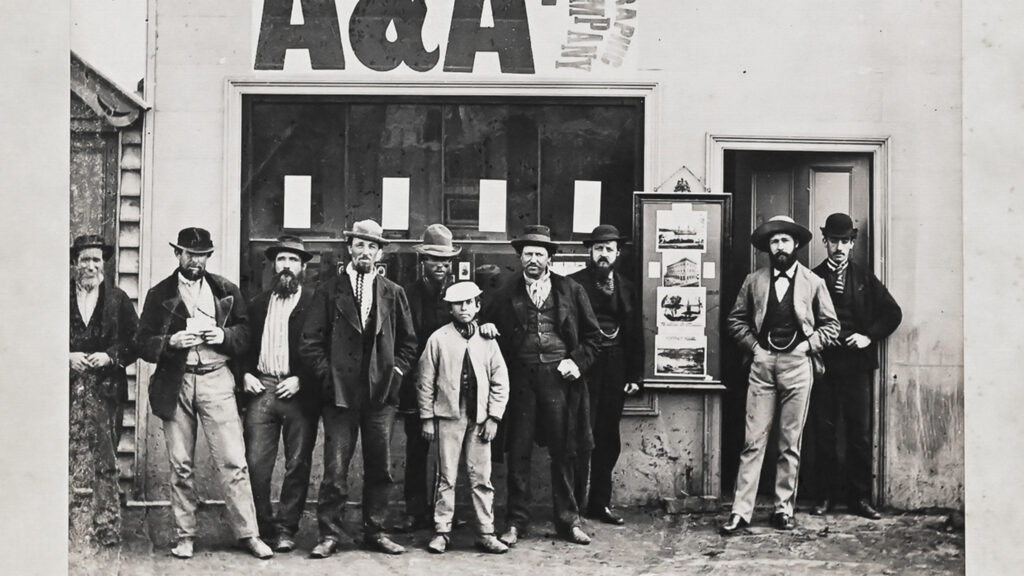
A chance encounter with a travelling photographer changed the course of young Charles Bayliss’s life in 1866. He was sixteen years old and living in suburban Melbourne when Beaufoy Merlin knocked on the door and asked to photograph the family home. The entrepreneurial Merlin had started a business documenting the buildings and houses of the […]
Read More…
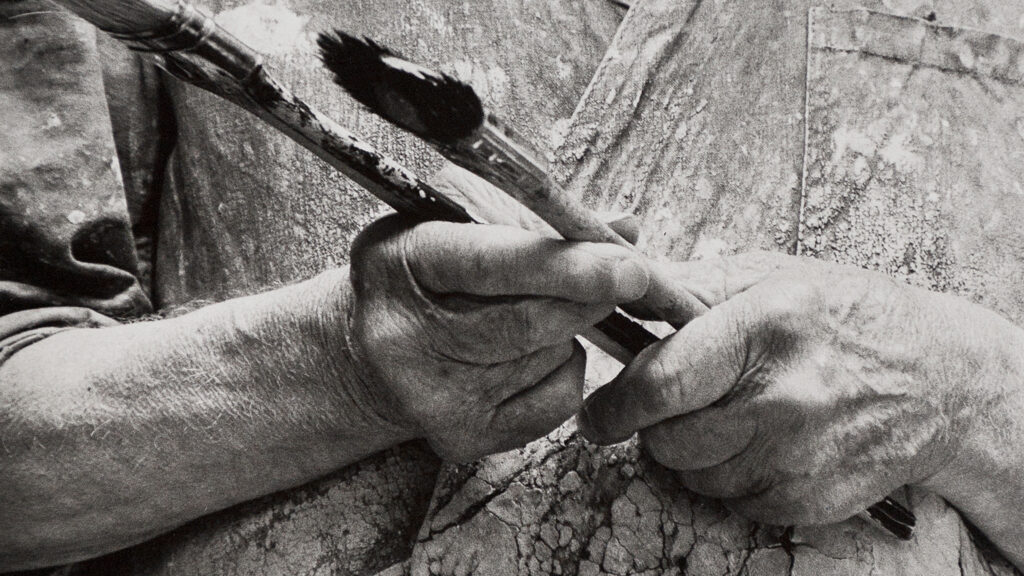
Greg Weight (1946- ) has been photographing artists since he joined Martin Sharp, Brett Whiteley, George Gittoes, and Peter Kingston at the artist-run Yellow House in Sydney in 1970. There, he met people who fascinated him for the ways in which they interpreted ‘the mystery and phenomena of the real world.’ For Weight, taking photographs […]
Read More…
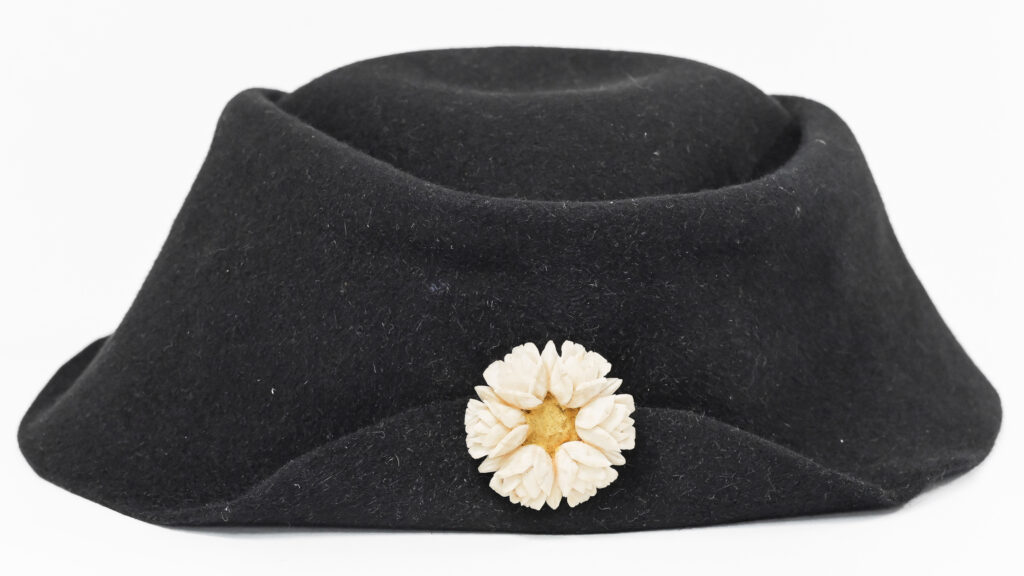
After his sudden death in 1992, Brett Whiteley’s daughter Arkie remembered her artist father as a ‘generous, sweet intuitive man’ who would go to eternity wearing his ‘funny little turned up black hat with the frangipani brooch.’ The hat, now in the collection of the Bathurst Regional Art Gallery, was his ‘good luck hat. He […]
Read More…
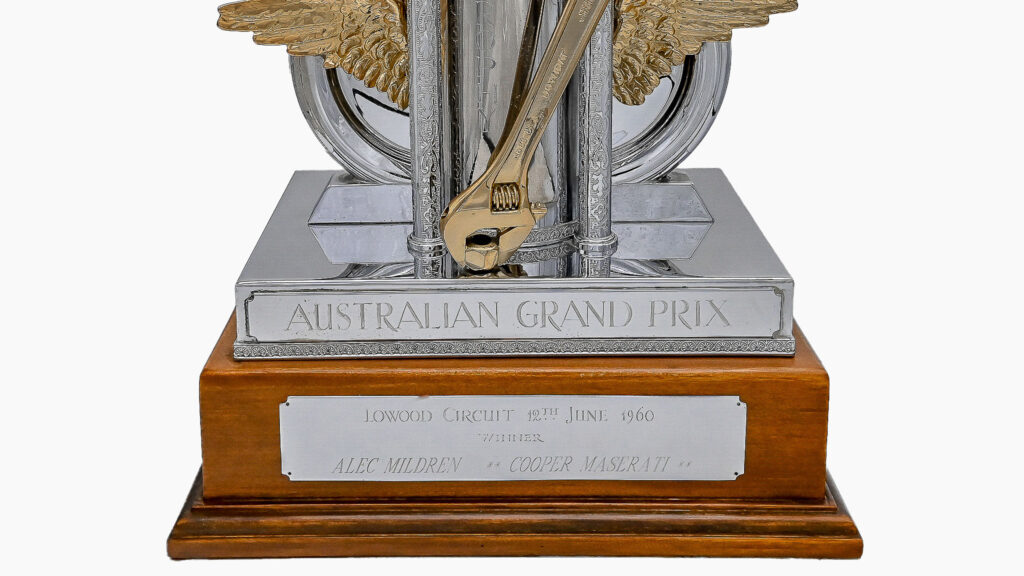
This would become Alec Mildren’s ultimate moment of glory – one he had been tirelessly working toward. Stepping up to the podium in June 1960, he accepted this trophy for his thrilling win of the 25th Australian Grand Prix (est. 1928). It was official, he had the fastest car in Australia. Engraved with his name, […]
Read More…
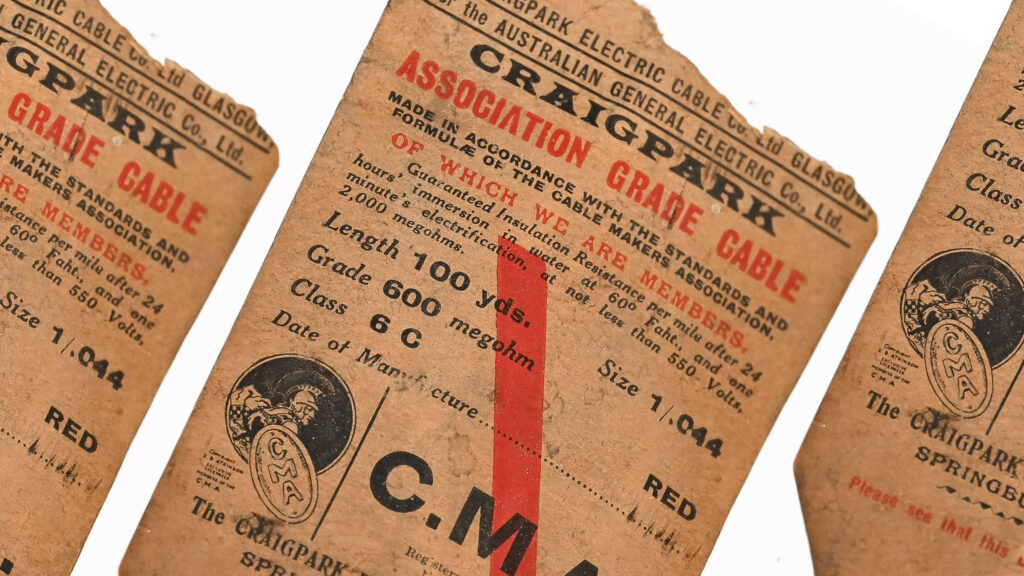
Discarded by a tradesman, this small cardboard electrical installation tag lay silent and forgotten for decades in the darkness of the roof of the Chifley family house in Bathurst. In the rooms below, the residents lived out their lives as the Great Depression and World War II unfolded. In 1914, Bathurst-born Ben Chifley (1885-1951) and […]
Read More…
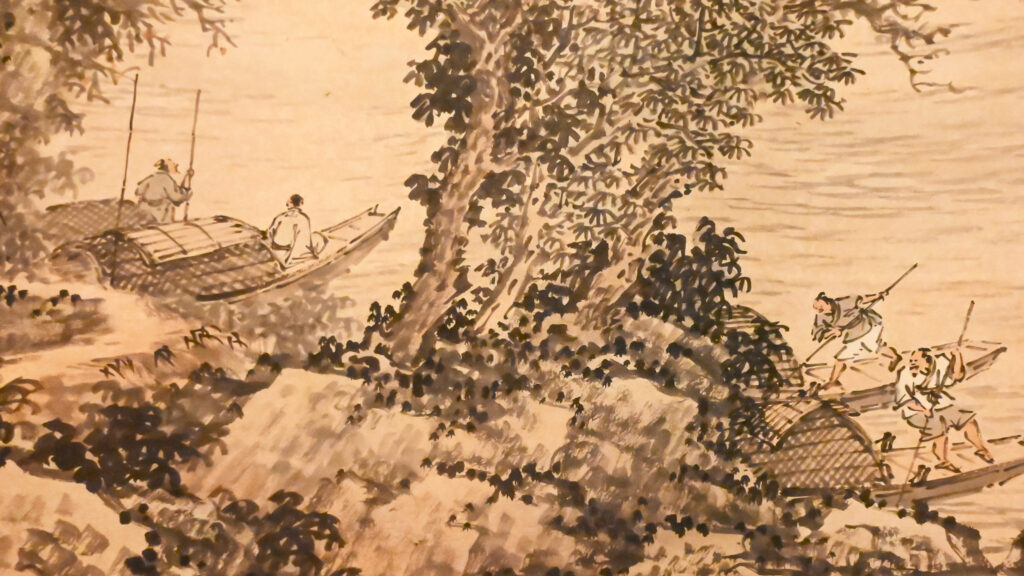
Elizabeth ‘Lizzie’ Chifley liked to knit. On the wall of her rendered brick cottage at 10 Busby Street, Bathurst, nearby the comfortable sage green armchair where she often sat to pursue her craft, this beautiful Chinese scroll had been hanging since about 1948. Lizzie was Prime Minister Ben Chifley’s wife, and this was their home, […]
Read More…
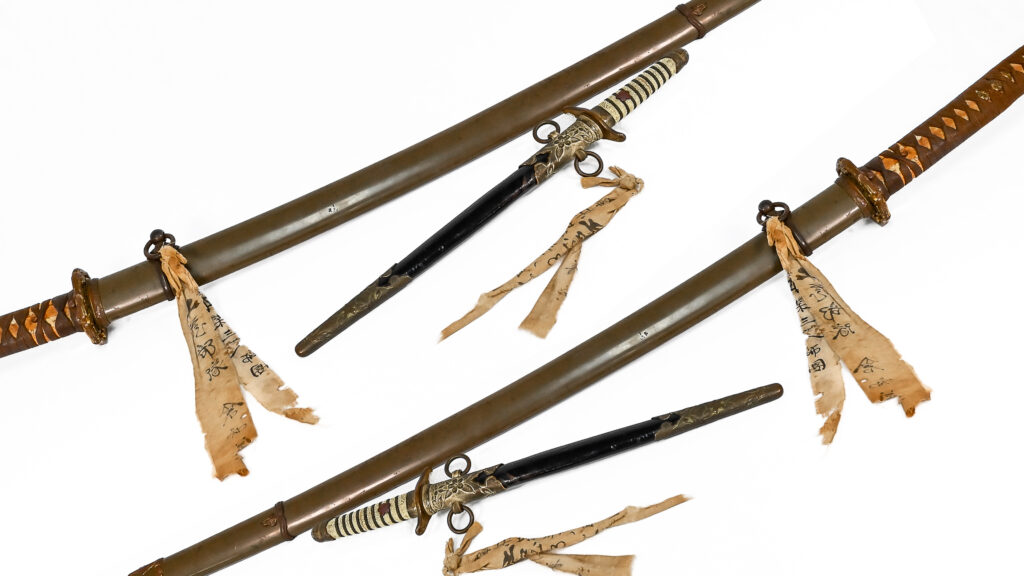
Swords and daggers conjure up images of hand-to-hand combat; brutal, bloody and deadly. But it is likely that these examples were never wielded against an enemy. Though they were carried on the belt as part of the uniform of a Japanese military officer during World War II, this sword and dagger had a deeper purpose […]
Read More…
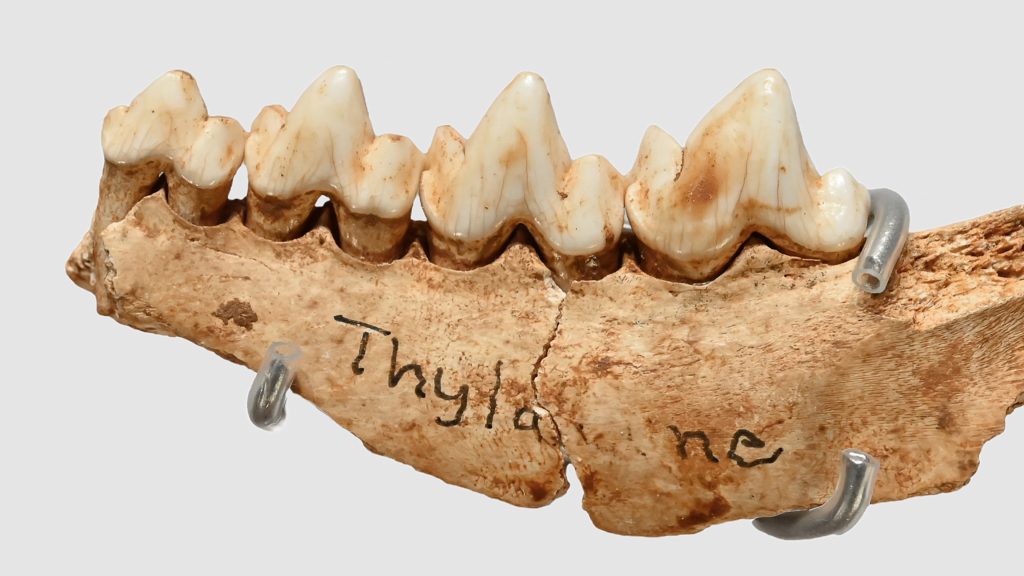
One million years ago, the owner of this jawbone and teeth prowled the grasslands in the area now known as Wellington, in the Dubbo region of central NSW. It was the carnivorous Australian marsupial and specialised predator known as a thylacine (Thylacinus cynocephalus), Tasmanian Tiger, or Tasmanian Wolf. A striped dog-like animal, it had a […]
Read More…
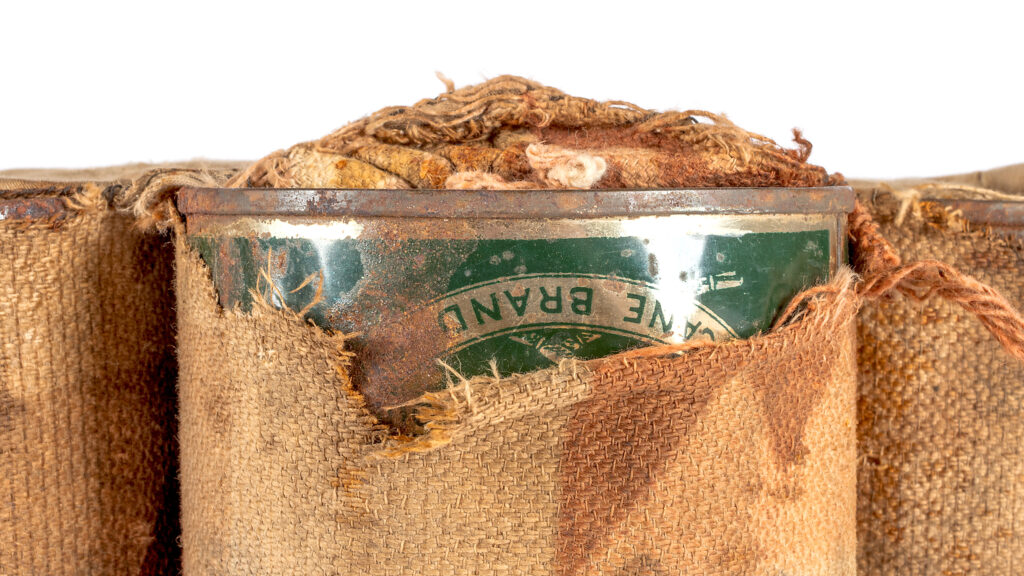
In late 1929, stock markets crashed and the world fell into the Great Depression. By 1932, one in three Australian breadwinners were unemployed. Families queued at soup kitchens or relied on government payments that allowed them to buy only the bare minimum of food. For many poor families, the staple meal was bread and ‘dripping’ […]
Read More…
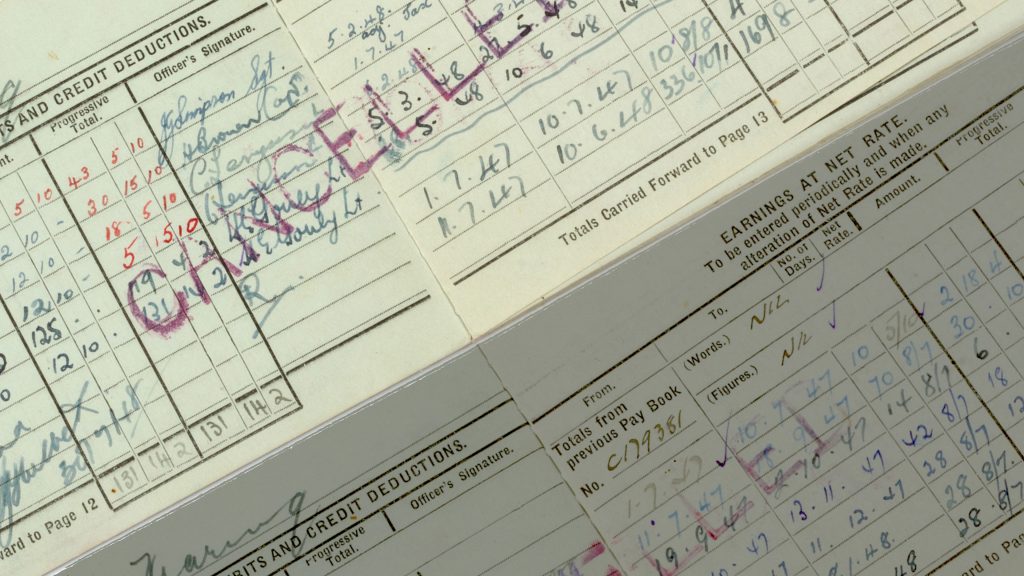
The World Wars unfolded as both harrowing battlefields and captivating cultural stages, with one of its greatest conflicts becoming the evolving role and recognition of women as they contributed to Australia’s military effort. During WWI, women’s direct involvement in the military beyond Australian soil was limited to a few thousand nursing roles. While some women […]
Read More…











